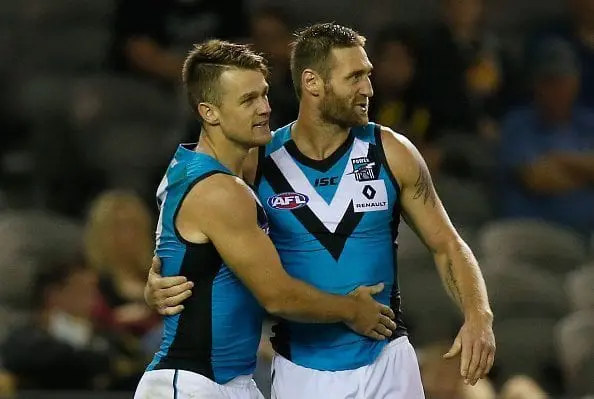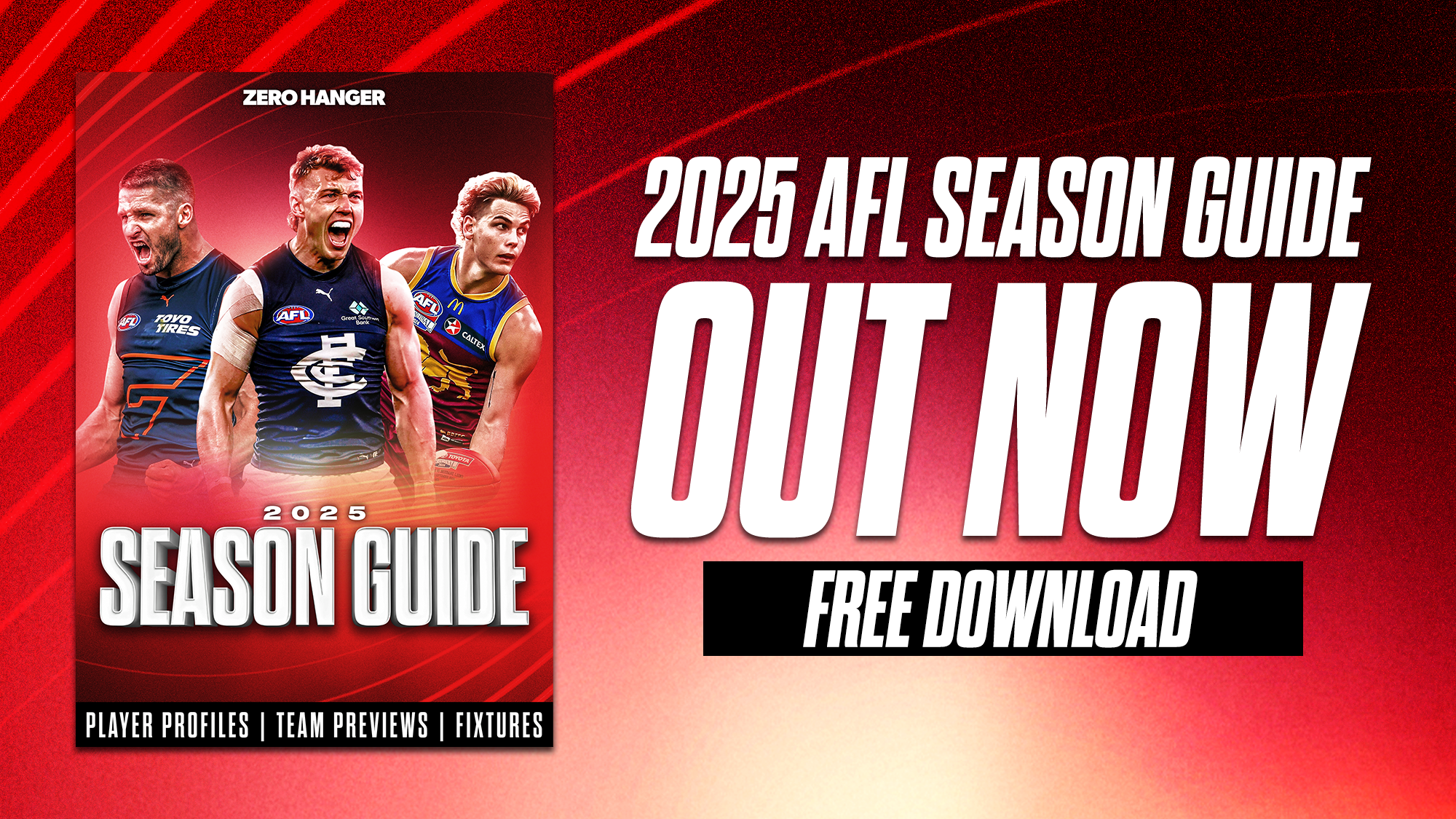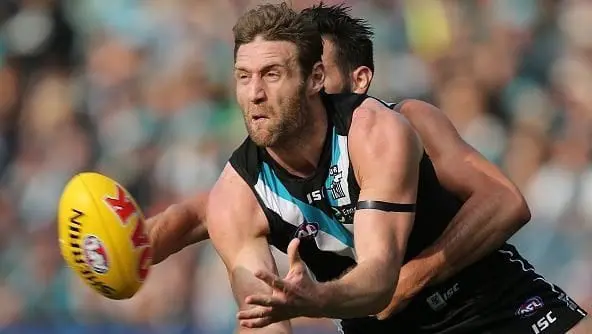Former Port Adelaide and Richmond forward Jay Schulz has opened up on his battle with brain damage, having suffered in the vicinity of 40 concussions over AFL career.
In an ongoing tussle with "high anxiety, anger, depression", Schulz at times finds himself snapping and grinding his teeth in a random occurrence, with his worrying family at the forefront of his concerns.
It has led him to pledge his brain to science in the hope of further studies into the impacts concussion can have on the futures of AFL players, and the imminent health risk at hand.
Schulz was one of 10 former players that underwent a Swinburne University study to aid research into the effects of head knocks, something the 37-year-old is all too familiar with.
“It’s been pretty confronting for the family,” Schulz told The Advertiser.
“My kids don’t understand there’s something wrong with Dad’s brain, which has changed the way he is – it’s changed my personality.
“I used to be a very relaxed, calm guy, now I’ve got high anxiety, anger, depression, a very short fuse.
“I can be fine, sitting, watching TV and all of a sudden I can feel myself grinding my teeth for no reason whatsoever.

“You start to not be able to think or do or feel things you used to be able to and that makes you frustrated, and that makes you want to escape.
“Then you start doing things that make it even worse.”
Schulz played 194 games across 14 seasons in the AFL, earning four leading goalkicker awards at Port Adelaide after joining from Richmond at the end of 2009.
The South Australian-born Schulz has since taken on a role with AFL Tasmania in moving to Launceston, however finds everyday tasks difficult given his struggle with memory loss.
“Most days I open up my laptop and have to go into my sent messages to realise what I’d done the day before with work,” Schulz said.
“Even guys I work with, they’ll see my mood is some days down, other days a lot better.
“I’ll ring people and they’ll say ‘yeah mate, we actually spoke about this two days ago’.
“So I’ve had to tell work colleagues what’s happening because they’ve been going ‘what’s going on with this fella?’
“...I’d already accepted the fact I had permanent damage, I just didn’t know how much."
After learning the depths of the damage others in his position have been left with, Schulz is set on educating current footballers, stressing the need for players to consider their health immediately after head knocks.
“You’re in the heat of the moment,” he said.
“And you wouldn’t think about it (the head injury) after the game because you wouldn’t get any symptoms, have a headache or anything like that.
“I love the fact it’s a contact sport and the way Australians play their sport, and I love the fact how much work there’s been done in the concussion space the last five or six years.
“But after getting my report back, I realise how much more work there’s needed to be done.”








